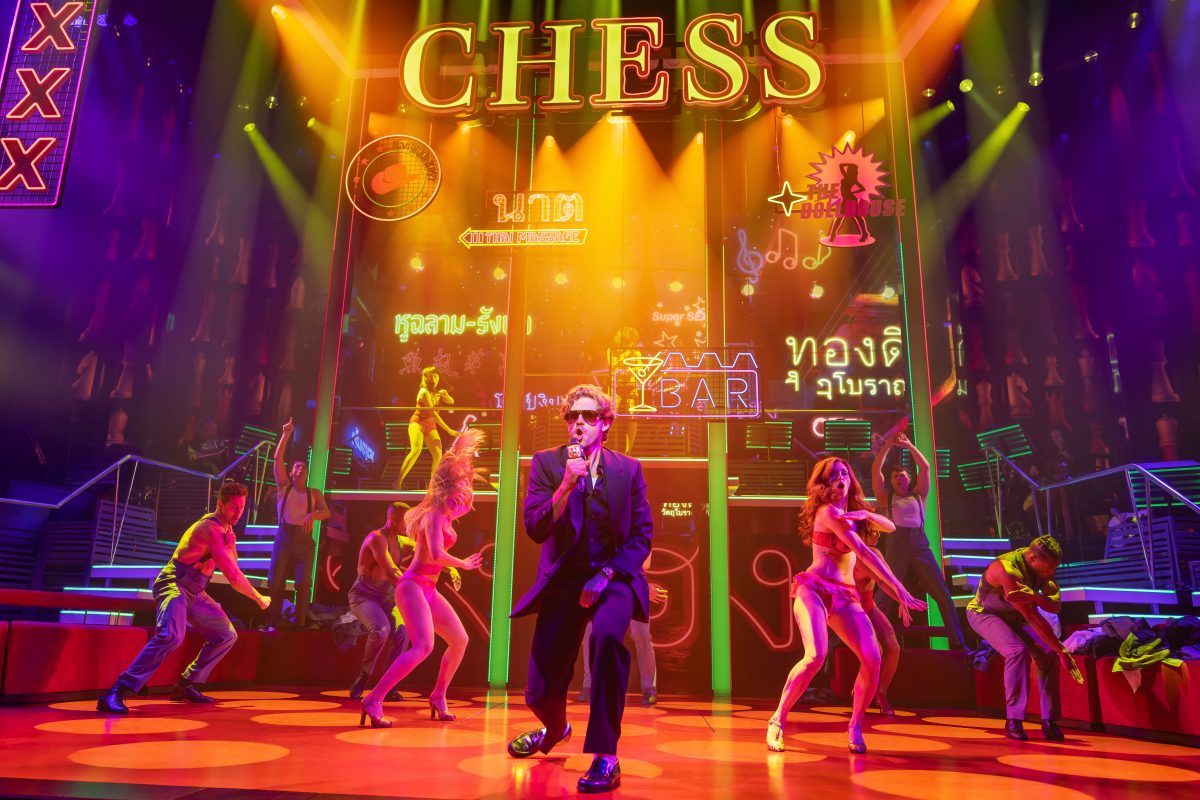By Robyn Roberts
The cast of Chess on Broadway delivers an electrifying and emotionally resonant performance, guided by director Michael Mayer, and ignited by legendary score of writers, Benny Andersson, Björn Ulvaeus, and Tim Rice.
Chess arrives on Broadway with the confidence of a grandmaster and the vibe of a genuine crowd-pleaser. From the first flicker of the chessboard motif to the last sustained note, Chess makes a compelling case for the show’s return to the spotlight, embracing its Cold War intrigue and pop-opera sweep with clarity, style, and heart.
Aaron Tveit commands the stage as Freddie Trumper, infusing the role with magnetic energy and a rock-inflected vocal brilliance that captures both the character’s bravado and vulnerability. Lea Michele’s Florence Vassy lends vocal clarity with dramatic depth, anchoring the show’s complex love triangle with a performance that balances strength with sensitivity. Nicholas Christopher, playing Anatoly Sergievsky, offers a nuanced approach, his rich baritone and understated intensity gives gravitas to the Russian chess champion’s moral and personal struggles within.
The performances match the production’s ambition. The central trio generates genuine heat and nuance, suggesting the triangle not as a plot convenience but a collision of bruised egos, genuine affection, and clashing personal identities. Vocally, the cast delivers the goods. Rangy, expressive, and attentive, yet what lingers is the specificity in their actions. A glance that lands like a dagger, a breath held one beat too long, a gesture that reveals more than a lyric could alone. The Chess ensemble is a live wire, snapping into crisp formations and lending high-stakes urgency to press conferences, game matches, and media frenzies.
Musically, it’s a feast. Chess marries ABBA’s pop sophistication with theatrical sweep. The band gives the score real weight, as 1980’s synth-pop shimmers without feeling dated, guitars snarl where they should, and the strings add depth and ache. “One Night in Bangkok” crackles with satirical bite and percussive snap.
Great music and choreography aside, perhaps most impressively, the evening never loses sight of the human story. For all the spectacle, the production keeps returning to the people at the center of the story. What it costs to win, what it costs to walk away, what it means to be seen only as a symbol. By the curtain, the applause feels as much for the clarity as for the craft. Chess plays like the great musical it’s always threatened to be. Big, bold, and fiercely alive. See it at New York’s Imperial Theatre before it ends in early May, 2026. Tickets at https://chessbroadway.com/
